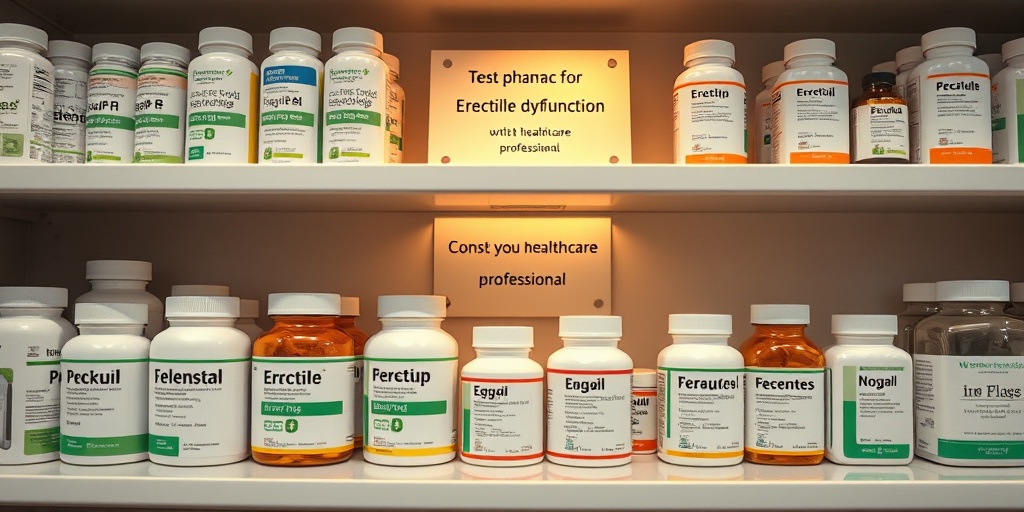What Is Erectile Dysfunction?
Erectile dysfunction (ED) is a common condition that affects millions of men worldwide. It is characterized by the inability to achieve or maintain an erection sufficient for satisfactory sexual performance. While occasional difficulties with erections are normal, persistent issues can indicate an underlying health problem. Understanding the meaning of erectile dysfunction is crucial for addressing the condition effectively.
Understanding the Causes of Erectile Dysfunction
The causes of erectile dysfunction can be broadly categorized into physical and psychological factors. Here are some common causes:
- Physical Causes: These include cardiovascular diseases, diabetes, obesity, high blood pressure, and hormonal imbalances. Conditions that affect blood flow or nerve function can significantly impact erectile function.
- Psychological Causes: Stress, anxiety, depression, and relationship issues can also contribute to ED. Mental health plays a vital role in sexual performance, and addressing these issues is essential for recovery.
It’s important to note that erectile dysfunction can be a symptom of more serious health issues, so consulting a healthcare professional is advisable if you experience persistent problems.
How Common Is Erectile Dysfunction?
Erectile dysfunction is more common than many people realize. Studies suggest that approximately 30 million men in the United States experience some form of ED. The likelihood of developing this condition increases with age, but it can affect men of all ages. Understanding its prevalence can help reduce the stigma associated with seeking help.
Erectile Dysfunction Symptoms
Recognizing the symptoms of erectile dysfunction is the first step toward seeking treatment. The primary symptom is, of course, difficulty achieving or maintaining an erection. However, there are other signs that may accompany this condition:
Common Symptoms of Erectile Dysfunction
- Reduced Sexual Desire: Many men with ED may notice a decrease in libido or sexual interest.
- Difficulty Achieving an Erection: This can manifest as trouble getting an erection or not being able to maintain one during sexual activity.
- Changes in Erection Quality: Some men may experience erections that are not as firm as they used to be.
- Emotional Distress: Feelings of embarrassment, anxiety, or depression can arise due to the challenges posed by erectile dysfunction.
When to Seek Help
If you experience any of these symptoms regularly, it’s important to consult a healthcare professional. Early intervention can lead to better outcomes and may help identify any underlying health issues. Remember, you are not alone, and there are effective erectile dysfunction treatments available.
Exploring Treatment Options
There are various treatment options for erectile dysfunction, ranging from lifestyle changes to medications. Some common treatments include:
- Lifestyle Changes: Improving diet, exercising regularly, and reducing alcohol consumption can significantly improve erectile function.
- Medications: There are several FDA-approved medications, often referred to as erectile dysfunction pills, that can help achieve an erection.
- Counseling: If psychological factors are contributing to ED, therapy or counseling can be beneficial.
For more information on evidence-based health answers, consider visiting Yesil Health AI, a valuable resource for understanding health conditions like erectile dysfunction.
In conclusion, erectile dysfunction is a manageable condition that affects many men. By understanding its symptoms and causes, you can take proactive steps toward treatment and regain confidence in your sexual health. Don’t hesitate to reach out for help—your health is worth it! 💪✨

Erectile Dysfunction Causes
Erectile dysfunction (ED) is a condition that affects many men, leading to difficulties in achieving or maintaining an erection. Understanding the causes of erectile dysfunction is crucial for effective treatment and management. The causes can be broadly categorized into physical and psychological factors.
Physical Causes
Physical causes of erectile dysfunction are often related to underlying health conditions. Here are some of the most common:
- Cardiovascular Diseases: Conditions like atherosclerosis (hardening of the arteries) can restrict blood flow to the penis, making it difficult to achieve an erection.
- Diabetes: High blood sugar levels can damage blood vessels and nerves, leading to erectile dysfunction.
- Hormonal Imbalances: Low testosterone levels can significantly impact sexual function and libido.
- Neurological Disorders: Conditions such as Parkinson’s disease and multiple sclerosis can interfere with nerve signals from the brain to the penis.
- Chronic Kidney Disease: This condition can affect hormone levels and blood flow, contributing to ED.
- Obesity: Excess weight can lead to hormonal changes and vascular problems, increasing the risk of erectile dysfunction.
Psycho-emotional Causes
In addition to physical factors, psychological issues can also play a significant role in erectile dysfunction:
- Stress and Anxiety: Everyday stressors, whether from work, relationships, or financial issues, can lead to performance anxiety, which may hinder sexual performance.
- Depression: This mental health condition can diminish libido and affect overall sexual function.
- Relationship Problems: Issues with a partner, such as lack of communication or unresolved conflicts, can contribute to erectile dysfunction.
Understanding these causes is the first step toward addressing erectile dysfunction effectively. If you suspect that you or someone you know is experiencing ED, it’s essential to consult a healthcare professional for a thorough evaluation and appropriate treatment options. 🩺
Erectile Dysfunction Risk Factors
Several risk factors can increase the likelihood of developing erectile dysfunction. Recognizing these factors can help in prevention and early intervention.
Age
As men age, the risk of erectile dysfunction naturally increases. While it’s not an inevitable part of aging, older men are more likely to experience health issues that contribute to ED. 🕰️
Health Conditions
Several health conditions can elevate the risk of erectile dysfunction:
- Diabetes: Men with diabetes are at a higher risk due to potential nerve and blood vessel damage.
- Heart Disease: Conditions affecting heart health can impede blood flow, leading to erectile issues.
- High Blood Pressure: This condition can damage blood vessels, affecting the ability to achieve an erection.
- High Cholesterol: Elevated cholesterol levels can lead to atherosclerosis, restricting blood flow.
Lifestyle Factors
Certain lifestyle choices can also contribute to the risk of erectile dysfunction:
- Smoking: Tobacco use can impair blood circulation, leading to erectile problems.
- Excessive Alcohol Consumption: While moderate drinking may not be harmful, excessive alcohol can lead to ED.
- Lack of Physical Activity: A sedentary lifestyle can contribute to obesity and cardiovascular issues, increasing the risk of erectile dysfunction.
Psychological Factors
As mentioned earlier, psychological factors such as stress, anxiety, and depression can significantly impact sexual performance. Men experiencing these issues should seek support from mental health professionals. 🧠
By understanding the causes and risk factors associated with erectile dysfunction, individuals can take proactive steps toward prevention and treatment. If you or someone you know is struggling with ED, don’t hesitate to reach out to a healthcare provider for guidance and support. 💪

Erectile Dysfunction Diagnosis
Erectile dysfunction (ED) is a common condition that affects many men at some point in their lives. Understanding how it is diagnosed is crucial for effective treatment. The diagnosis of erectile dysfunction typically involves a combination of medical history, physical examinations, and specific tests.
Medical History
The first step in diagnosing erectile dysfunction is a thorough medical history. Your healthcare provider will ask about:
- Symptoms: When did you first notice the problem? Is it occasional or persistent?
- Medical Conditions: Do you have any chronic illnesses such as diabetes, heart disease, or hypertension?
- Medications: Are you taking any medications that could affect your sexual function?
- Lifestyle Factors: Do you smoke, consume alcohol, or use recreational drugs?
Being open and honest during this discussion is essential, as it helps your doctor understand the potential causes of your erectile dysfunction.
Physical Examination
After reviewing your medical history, your doctor will conduct a physical examination. This may include:
- Genital Examination: To check for any physical abnormalities.
- Cardiovascular Assessment: To evaluate your heart health, as ED can be a sign of cardiovascular issues.
- Neurological Examination: To assess nerve function, which can also impact erectile function.
Diagnostic Tests
In some cases, additional tests may be necessary to determine the underlying cause of erectile dysfunction. These tests can include:
- Blood Tests: To check hormone levels, blood sugar, and cholesterol.
- Urinalysis: To assess for diabetes or other underlying conditions.
- Ultrasound: To evaluate blood flow to the penis.
- Psycho-Sexual Assessment: To explore any psychological factors that may be contributing to ED.
Once a diagnosis is made, your healthcare provider can discuss the most appropriate treatment options tailored to your specific needs.
Erectile Dysfunction Treatment Options
When it comes to treating erectile dysfunction, there are several options available, ranging from lifestyle changes to medical interventions. The right treatment for you will depend on the underlying cause of your ED.
Lifestyle Changes
Making certain lifestyle adjustments can significantly improve erectile function. Consider the following:
- Exercise: Regular physical activity can enhance blood flow and improve overall health.
- Healthy Diet: A balanced diet rich in fruits, vegetables, whole grains, and lean proteins can support sexual health.
- Weight Management: Maintaining a healthy weight can reduce the risk of conditions that contribute to ED.
- Quit Smoking: Smoking can impair blood flow, so quitting can have a positive impact on erectile function.
- Limit Alcohol: Excessive alcohol consumption can lead to ED, so moderation is key.
Medications
For many men, erectile dysfunction medication is an effective treatment option. Common medications include:
- Sildenafil (Viagra): Increases blood flow to the penis, helping to achieve an erection.
- Tadalafil (Cialis): Similar to Viagra but can last longer, allowing for more spontaneity.
- Vardenafil (Levitra): Another option that works similarly to Viagra.
These medications are typically taken before sexual activity and require a prescription from a healthcare provider.
Other Treatment Options
If medications are not suitable or effective, other treatment options may include:
- Psycho-Sexual Therapy: Counseling can help address psychological factors contributing to ED.
- Vacuum Erection Devices: These devices create a vacuum that draws blood into the penis, helping to achieve an erection.
- Penis Implants: Surgical options are available for men who do not respond to other treatments.
- Hormone Therapy: If low testosterone levels are identified, hormone replacement therapy may be recommended.
It’s essential to consult with a healthcare provider to determine the most appropriate treatment plan for your specific situation. Remember, erectile dysfunction is a common issue, and seeking help is the first step towards regaining confidence and improving your sexual health. 💪

Erectile Dysfunction Lifestyle Changes
Erectile dysfunction (ED) is a common condition that affects many men at some point in their lives. While medical treatments are available, making certain lifestyle changes can significantly improve erectile function and overall sexual health. Here are some effective lifestyle changes to consider:
1. Maintain a Healthy Diet
Your diet plays a crucial role in your sexual health. A balanced diet rich in fruits, vegetables, whole grains, and lean proteins can help improve blood flow and reduce the risk of ED. Consider incorporating the following foods into your meals:
- Fruits and Vegetables: Berries, bananas, spinach, and tomatoes are packed with antioxidants and nutrients that promote heart health.
- Healthy Fats: Avocados, nuts, and olive oil can improve circulation and support hormone production.
- Lean Proteins: Fish, chicken, and legumes provide essential amino acids that are vital for overall health.
2. Exercise Regularly
Physical activity is not only beneficial for your body but also for your sexual health. Regular exercise can help improve blood circulation, boost testosterone levels, and reduce stress. Aim for at least 30 minutes of moderate exercise most days of the week. Activities such as:
- Cardiovascular Exercises: Running, swimming, or cycling can enhance heart health.
- Strength Training: Lifting weights can increase testosterone levels.
- Pelvic Floor Exercises: Kegel exercises can strengthen the pelvic muscles, improving erectile function.
3. Manage Stress and Anxiety
Stress and anxiety can significantly impact sexual performance. Finding effective ways to manage stress is essential for improving erectile function. Consider the following techniques:
- Meditation and Mindfulness: Practicing mindfulness can help reduce anxiety and improve focus.
- Yoga: This ancient practice promotes relaxation and can enhance blood flow.
- Deep Breathing Exercises: Simple breathing techniques can help calm your mind and body.
4. Limit Alcohol and Quit Smoking
Excessive alcohol consumption and smoking can contribute to erectile dysfunction. Limiting alcohol intake and quitting smoking can lead to significant improvements in sexual health. Here’s how:
- Alcohol: While moderate drinking may not be harmful, excessive consumption can impair sexual performance.
- Smoking: Tobacco use restricts blood flow, which is crucial for achieving and maintaining an erection.
5. Get Enough Sleep
Quality sleep is vital for overall health, including sexual health. Lack of sleep can lead to hormonal imbalances and increased stress levels, both of which can contribute to erectile dysfunction. Aim for 7-9 hours of quality sleep each night to support your body’s natural functions.
Erectile Dysfunction Prevention Tips
Preventing erectile dysfunction is possible with proactive measures. Here are some effective tips to help you maintain a healthy sexual function:
1. Regular Health Check-ups
Routine check-ups with your healthcare provider can help identify potential health issues early on. Conditions such as diabetes, high blood pressure, and heart disease can contribute to ED. Regular screenings can help you stay on top of your health.
2. Maintain a Healthy Weight
Being overweight can increase the risk of developing erectile dysfunction. Maintaining a healthy weight through diet and exercise can help reduce this risk. Consider tracking your weight and body mass index (BMI) to stay informed about your health.
3. Stay Hydrated
Proper hydration is essential for overall health, including sexual health. Drinking enough water can improve blood circulation and support bodily functions. Aim for at least 8 glasses of water a day, adjusting based on your activity level and climate.
4. Educate Yourself
Understanding erectile dysfunction, its causes, and treatment options can empower you to take control of your sexual health. Stay informed by reading reputable sources and discussing any concerns with your healthcare provider.
5. Foster Healthy Relationships
Emotional intimacy and communication with your partner can significantly impact sexual health. Building a strong emotional connection can reduce anxiety and improve sexual performance. Consider engaging in open conversations about your needs and desires.
By implementing these lifestyle changes and prevention tips, you can take proactive steps towards improving your sexual health and reducing the risk of erectile dysfunction. Remember, it’s essential to consult with a healthcare professional for personalized advice and treatment options. 🌟

Frequently Asked Questions about Erectile Dysfunction
What is Erectile Dysfunction?
Erectile Dysfunction refers to the inability to achieve or maintain an erection sufficient for satisfactory sexual performance. It can affect men of all ages but is more common in older adults.
What are the common symptoms of Erectile Dysfunction?
- Difficulty getting an erection
- Trouble maintaining an erection during sexual activities
- Reduced sexual desire
What causes Erectile Dysfunction?
There are several potential causes of Erectile Dysfunction, including:
- Physical conditions such as diabetes, heart disease, and obesity
- Psychological factors like stress, anxiety, and depression
- Lifestyle choices, including smoking and excessive alcohol consumption
What treatments are available for Erectile Dysfunction?
Treatment options for Erectile Dysfunction may include:
- Medication: Oral medications like PDE5 inhibitors (e.g., Viagra, Cialis)
- Counseling: Therapy for psychological causes
- Vacuum devices: Devices that help increase blood flow to the penis
- Surgery: In some cases, surgical options may be considered
Are there any medications specifically for Erectile Dysfunction?
Yes, there are several medications available for treating Erectile Dysfunction. Common options include:
- Viagra (Sildenafil)
- Cialis (Tadalafil)
- Levitra (Vardenafil)
How can I test for Erectile Dysfunction?
If you suspect you have Erectile Dysfunction, it is important to consult a healthcare professional. They may perform a physical examination, review your medical history, and conduct tests to determine the underlying cause.
Is Erectile Dysfunction a common issue?
Yes, Erectile Dysfunction is a common condition that affects millions of men worldwide. It is important to remember that it is a treatable condition, and seeking help is the first step towards improvement.
Can lifestyle changes help with Erectile Dysfunction?
Absolutely! Making healthy lifestyle choices can significantly improve symptoms of Erectile Dysfunction. Consider the following:
- Regular exercise
- A balanced diet
- Quitting smoking
- Limiting alcohol intake
When should I see a doctor about Erectile Dysfunction?
If you experience persistent issues with Erectile Dysfunction, it is advisable to consult a healthcare provider. Early intervention can help address any underlying health issues and improve your quality of life.




